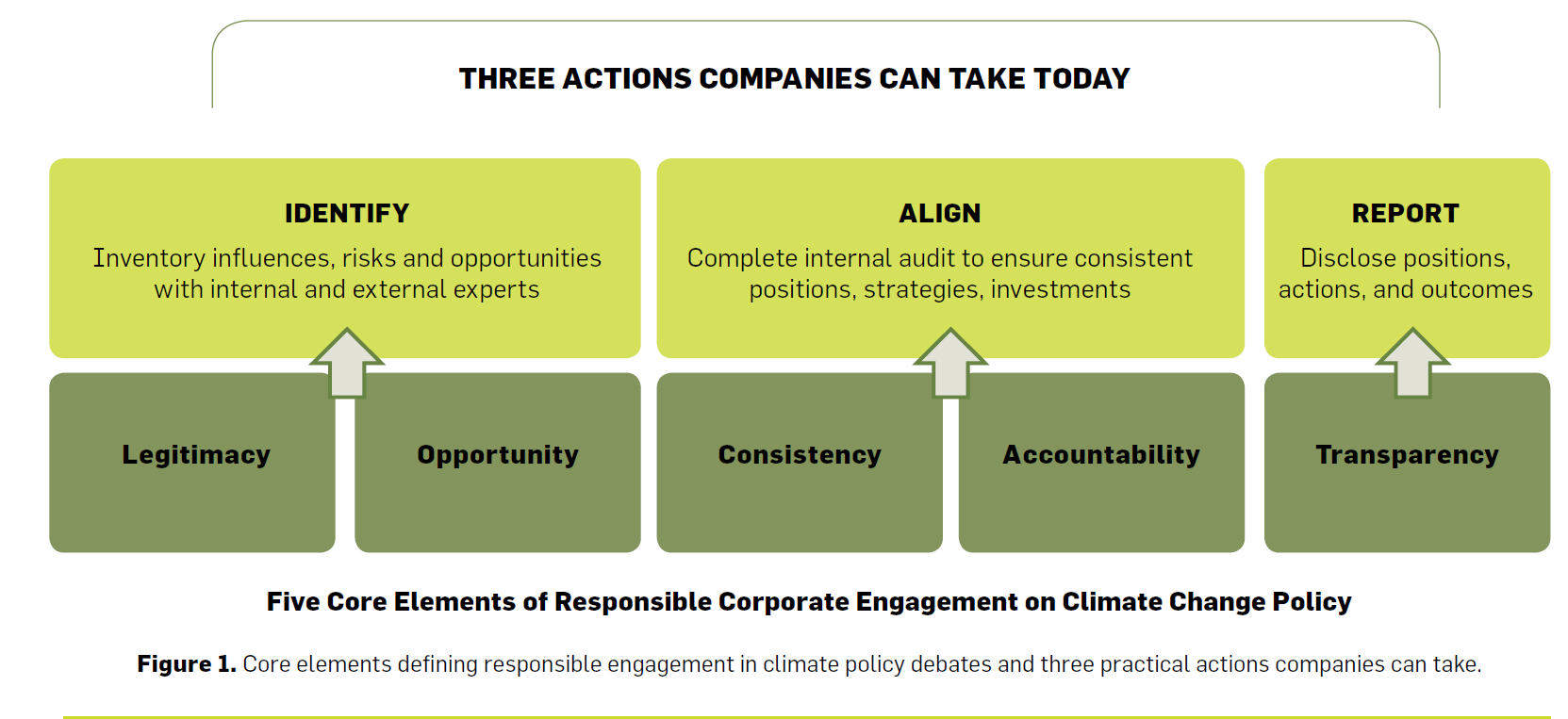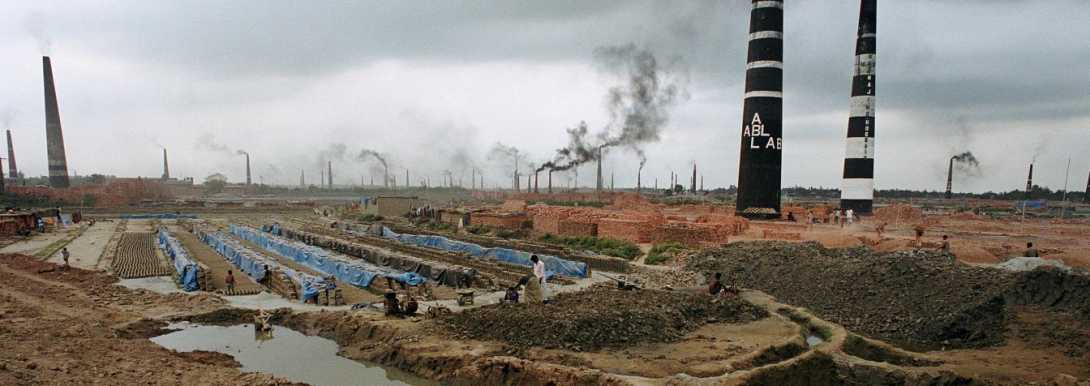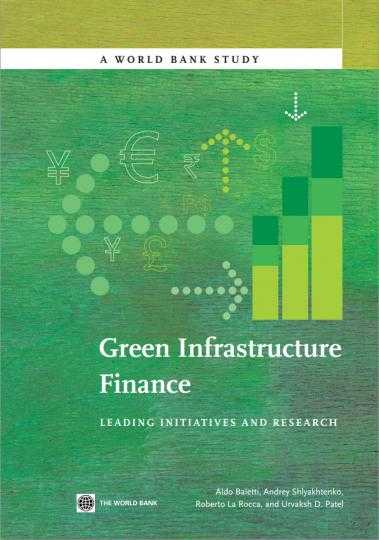This report was prepared for the G20 Development Working Group to inform the creation of a public-private G20 Dialogue Platform on Inclusive Green Investment to scale up commercially viable financial investments. This is a stocktaking exercise on existing innovative mechanisms to mobilize private capital for inclusive green growth investments in developing countries, and how to scale them up, including initiatives to engage institutional investors in these investments to identify best practices.
As a development institution focused on reducing poverty and boosting shared prosperity, the World Bank is working in many countries that suffer from a lack of basic services such as waste management, transportation, and access to modern energy. Addressing these development challenges often has an impact on the emission of short-lived climate pollutants (SLCPs) among them methane and tropospheric ozone, black carbon (BC), and hydrofluorocarbons (HFCs).
The Black Carbon Finance Study Group report finds that existing funds are already in a position to finance businesses, activities, technologies, and policies that will contribute to cutting black carbon emissions, and that several black carbon-rich sectors are sufficiently mature to absorb finance. The report also outlines key strategies and steps needed to scale up black carbon finance over time.
[video:https://youtu.be/uSMJwkkPQtk]
With careful design, the same development projects that improve communities, save lives, and increase GDP can also fight climate change. This interactive infographic explores the data from a new study examining the multiple benefits for a series of policy scenarios addressing transportation and energy efficiency in buildings and industry.
[video:https://youtu.be/_iTP_IBkm5I?t=4m00s]
Jim Yong Kim's held a speech at the Connect4Climate Right Here Right Now event, March 1, 2013:
I’m here today deliver a very simple message: The World Bank is committed to tackling climate change. But more than anything else, we are committed to tackling climate change because it affects the people we care about most.
Increasing concerns over the effects of climate change have heightened the importance of accelerating investments in green growth. The International Energy Agency, for example, estimates that to reduce carbon dioxide emissions by 50 percent by 2050, global investments in the energy sector alone will need to total US$750 billion a year by 2030 and over US$1.6 trillion a year from 2030-2050. Despite global efforts to mobilize required capital flows, the investments still fall far short.

The private sector has a huge responsibility in working to slow climate change, but what’s its role in developing policies? Recently an innovative report by UNEP, WRI, WWF, Ceres and CDP was released, providing guidelines to companies in best using their influence to shape good climate policies. The “Guide for Responsible Corporate Engagement in Climate Policy”, which was developed based on interviews with more than 75 leading companies, policymakers and investors, is intended to compel businesses to identify, align and report their actions towards climate policies in order to bring transparency and accountability.
Since there has been much inconsistency in companies’ sustainability commitments and their lobbying actions, CDP has recently called on corporations to disclose their climate lobbying positions. The Guide for Responsible Corporate Engagement in Climate Policy can help in managing and reporting influences on climate policy to make sure that proposed sustainability commitments are linked with lobbying actions.
This guide is innovative and inspiring; by helping companies take responsibility and subtly calling them out for working against climate policies, we find a way to incorporate corporations into the conversation without making them seem like the enemy. It is true that corporate influences have presented a major obstacle to the climate policy process, but private sector participation is necessary to establish a low-carbon economy. The UN Global Compact reports that “only 30% of leading companies have aligned their lobbying with their corporate responsibility commitments”, but with more pressure to ensure transparency and accountability, there will be a stronger business for consistency.
At COP19, business leaders and government officials came together to learn about this new guide at the Caring for the Climate Business Forum at the UNFCCC in Poland. Other business forums at the UNFCCC this year, like the Climate Solutions 2013, help the private and public sector work together to find solutions and be able to come up with a global climate agreement in 2015. At the UNFCCC’s Business, Industry & NGOs Day, Christina Figueres stressed that “we must hear loudly and clearly that the private sector is willing to participate in markets, increase efficiency, capture technology gains and produce low-carbon products” for an international agreement.
So it seems that we are entering a new paradigm, one in which governments and the public are holding the private sector accountable in their actions towards climate policy. Many companies understand the risks involved in not addressing climate change; in the US, we recently saw the Business for Innovative Climate & Energy Policy stressing that action on the national level needs to happen. Although many are criticizing corporations for holding COP19 hostage, we must stop labeling companies as the bad guys, and start thinking of how they will be able to help in establishing a new regime of progressive climate policy and a low-carbon economy.

Source: WRI 2013

Leaders from across government and business are sending a clear message to the world this week that climate change is a risk that cannot be ignored, and, importantly, that they are ready to work together to bring down emissions.
Seventy-three countries and 22 states, provinces and cities – together responsible for 54 percent of global greenhouse gas emissions and 52 percent of GDP – joined over 1,000 businesses and investors in signaling their support for carbon pricing through a series of initiatives being announced at the UN Secretary-General’s Climate Leadership Summit on Tuesday.
The list includes countries like China and South Africa that are planning carbon pricing, as well as Russia and countries at high risk from climate change, like the Marshall Islands. It includes business ranging across industry, energy and transportation, and institutional investors with more than $24 trillion in assets.
This is a wake-up moment. Carbon pricing if expanded to this scale and then globally has the potential to bring down emissions in a way that supports clean energy and low-carbon growth while giving businesses the flexibility to innovate and find the most efficient choices.
“The science is clear. The economics are compelling. We are seeing a shift toward the economic architecture that will be necessary to avoid a 2-degree-warmer world, an architecture that supports green growth, jobs and competitiveness,” said World Bank Group Vice President and Special Envoy for Climate Change Rachel Kyte.
To move carbon pricing use and understanding forward, the World Bank Group, World Economic Forum, and We Mean Business Coalition announced that they would convene a carbon pricing leadership coalition with business and government leaders.

Since 1997 ClimateCare has specialised in projects that tackle climate change and deliver sustainable development outcomes. Winners of a Queen’s Award for Sustainable Development, ClimateCare recently announced targets to cut 20 million tonnes of CO2 and improve the lives of 20 million people by 2020. CEO Edward Hanrahan shares his thoughts about what makes a successful climate and development programme.




